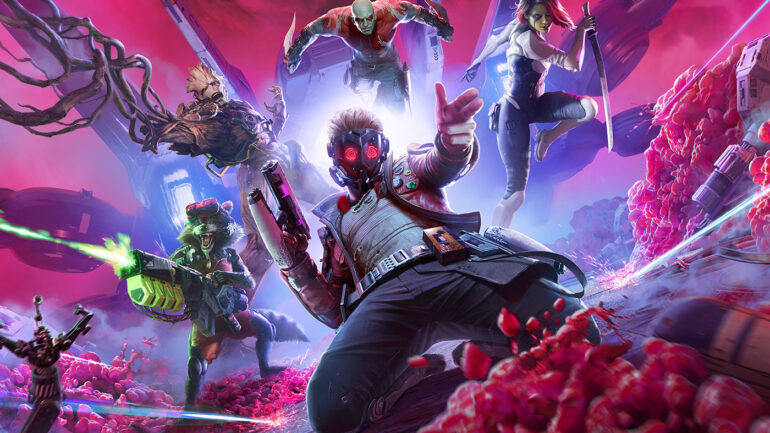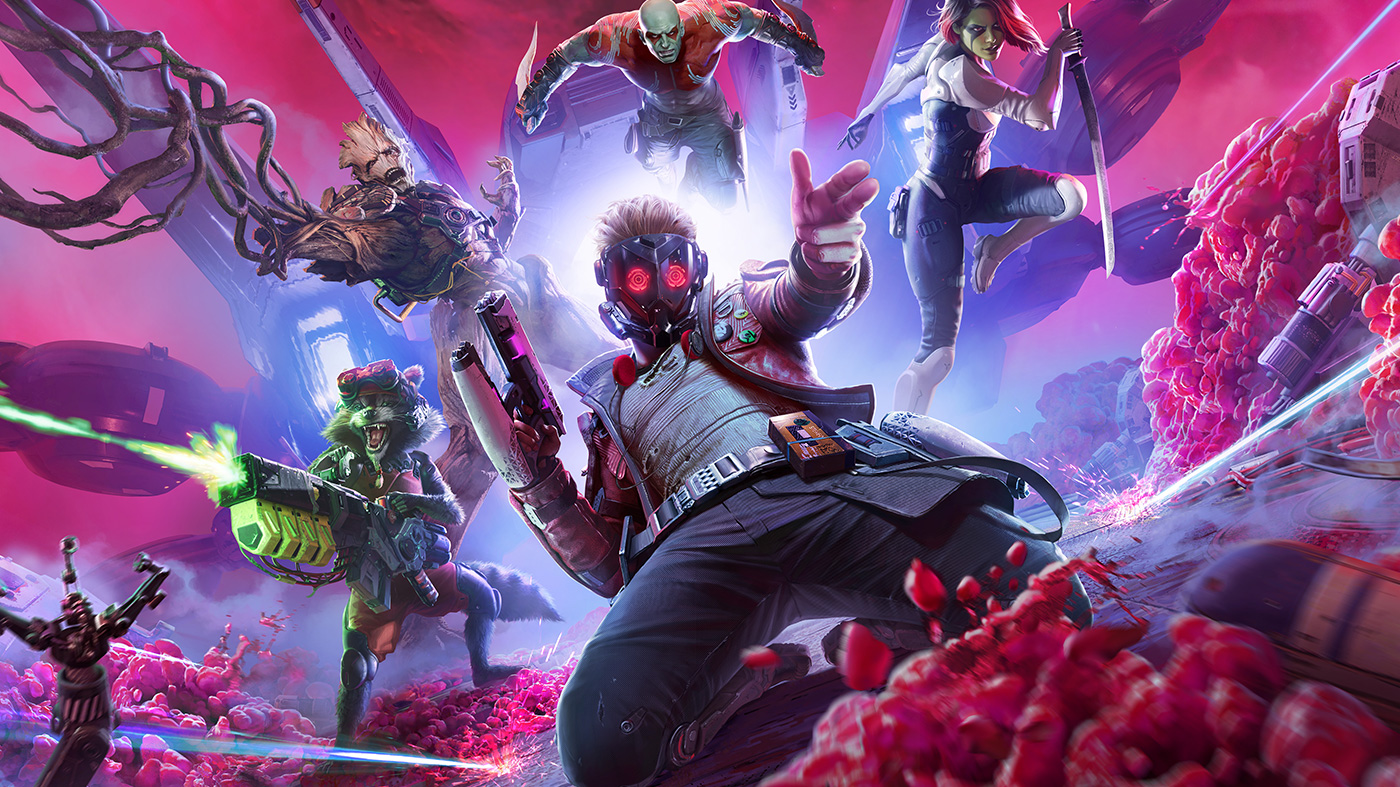Video games based on blockbuster media franchises tend to have a hard time. That was especially true of superhero games before the likes of Rocksteady and Insomniac led the charge toward something better. The success of titles like Batman: Arkham Asylum and Marvel’s Spider-Man rests entirely on the way they utilise the medium to empower players to feel like the heroes they love, to give them the hero experience. Marvel’s Guardians of the Galaxy, a fresh effort from Eidos Montreal, of Deus Ex: Human Revolution and Shadow of the Tomb Raider fame, should be lauded as another great example of this.
There are things that Marvel’s Guardians of the Galaxy absolutely nails – things like the tone, humour and character work that fans expect from the property. Eidos Montreal has done an exemplary job of taking cues from the comics, and of course the globally-recognised MCU films, while forging their own unique take on the world and characters. The result is something recognisable that still stands on its own as a fresh take, a target that 2020’s Marvel’s Avengers aimed for and missed.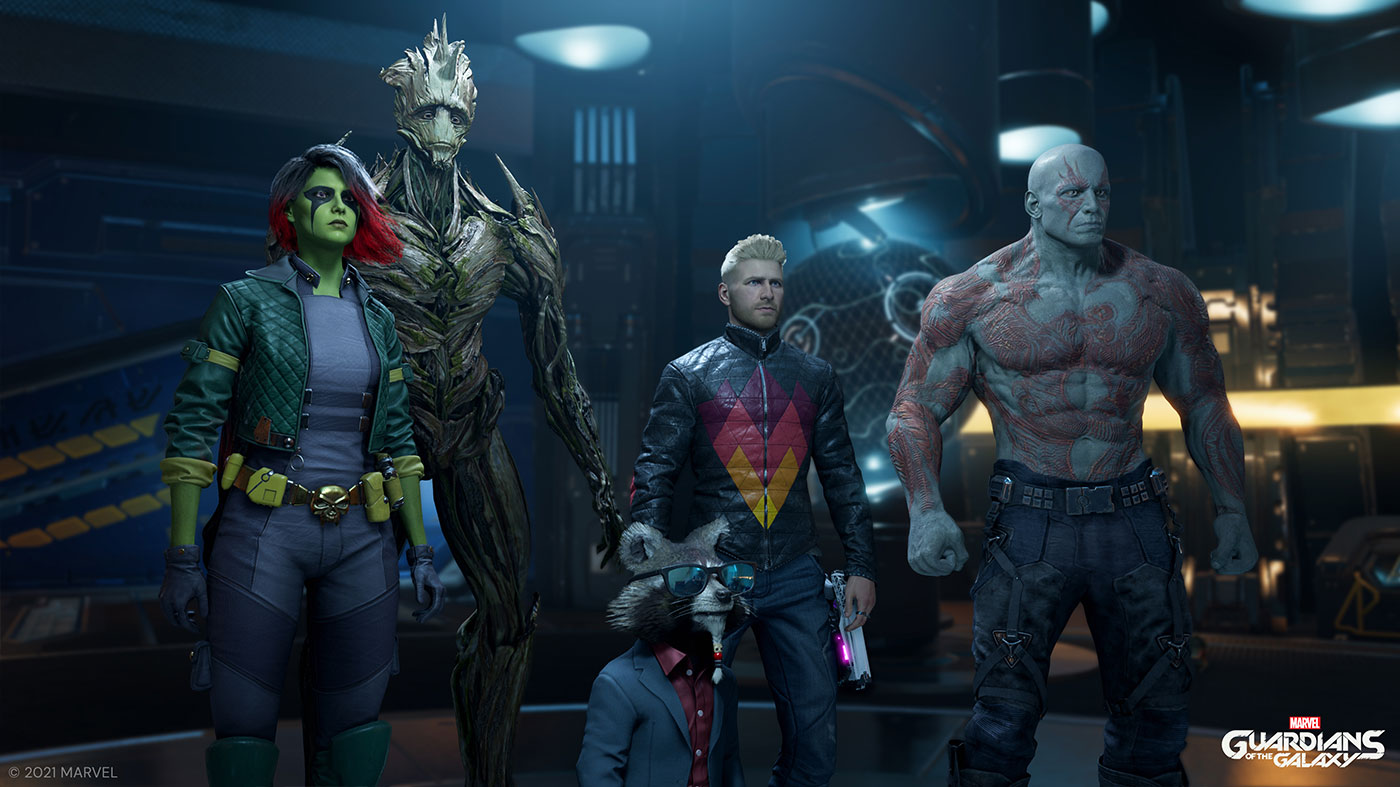
It couldn’t be further from last year’s ill-received Avengers title in fact, trading the multi-threaded, multiplayer game-as-a-service for a tightly-directed, single-player linear experience with a sole playable character in the form of Star-Lord, leader of the Guardians of the Galaxy. The game finds the Guardians still in their infancy as a collective, desperately trying to build their reputation one misguided con job at a time. It’s here that the decision to capture a ferocious monster to trade to a cosmically-renowned monster hunter lands the crew in multiple pots of hot water and kickstarts a twisted religious sect’s rise to power. So just normal outer space stuff.
It wouldn’t make sense for me to go into much more detail about the twists and turns of Guardians of the Galaxy’s core narrative, those are best left experienced first-hand, but what I can say is that the studio’s writing chops have never been put so confidently on display. Every single bit of dialogue in this game captures the tone, the charm and the wit of the franchise, carrying through to some truly exemplary character work. The overarching story is exciting on its own, but it’s the way it portrays its key players – their personalities, personal journeys and their arcs over the course of the game – that makes it something special.
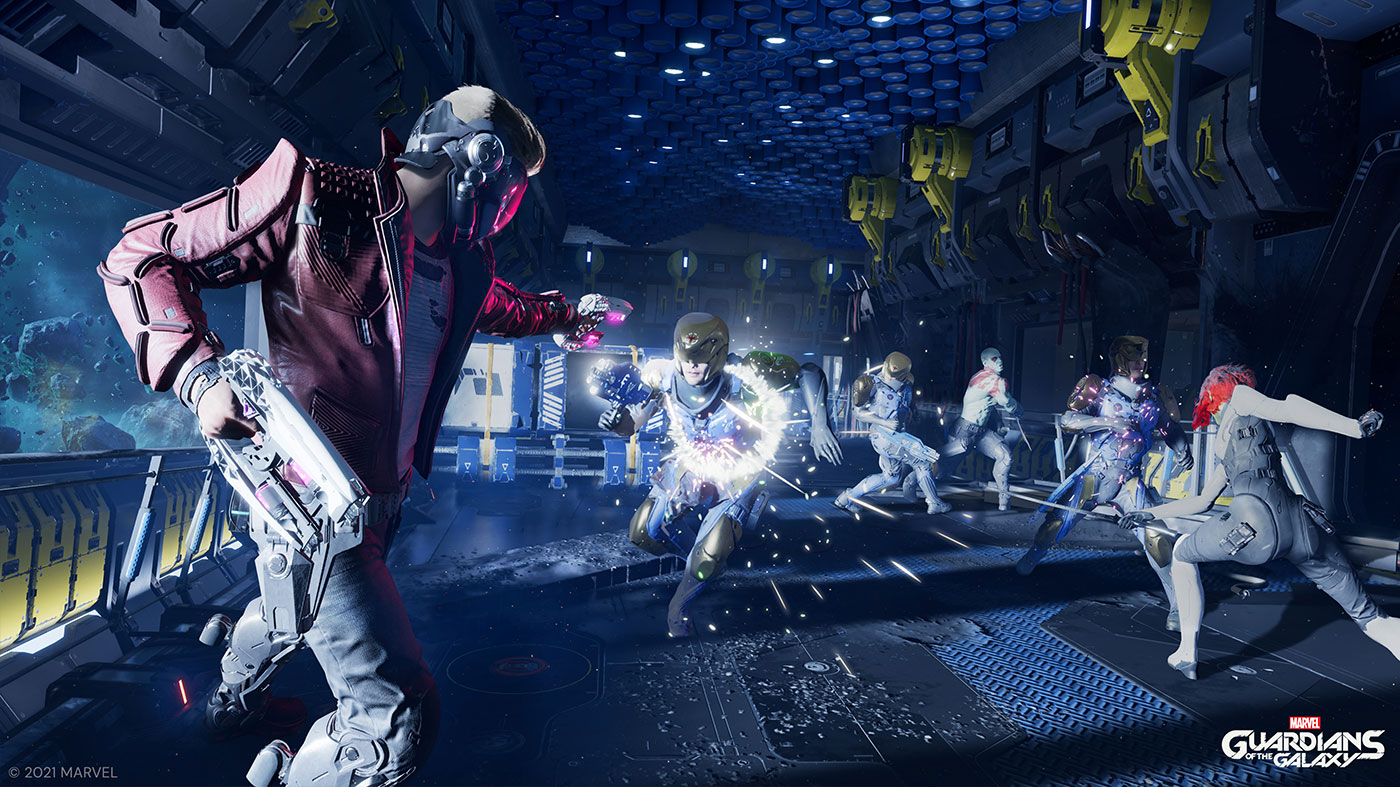
It’s also wonderfully goofy at every given opportunity. Though it’s a given with a property like Guardians of the Galaxy, it’s still refreshing to play a video game with this much charm, where brainwashing cults and intergalactic gods meet psychic space dogs with Russian accents and alien llamas. The full space-faring crew experience is here in full effect too, from heated strategy meetings to arguments over borrowed toothbrushes and fridge doors ajar to… sing-alongs? The Guardians franchise has a very distinct found-family vibe that hinges on comedic timing and the studio has very evidently understood the assignment.
Still, if it raises red flags to know that Eidos Montreal has put so much love and care into some of Marvel’s most unique heroes and then cast players as arguably the least exciting of the lot, well, you’re not mistaken. That said, and it’s something I’ve spoken about following my earliest hours with the game, one of the game’s most unique offerings is its ability to impart Star-Lord’s experiences as a leader through gameplay. Making leadership calls in Marvel’s Guardians of the Galaxy feels as crucial to selling the fantasy of its central character as web-swinging does in Marvel’s Spider-Man. As Quill, you’ll be consistently called on to make crucial decisions, settle arguments, solve problems and keep your teammates inspired and engaged.
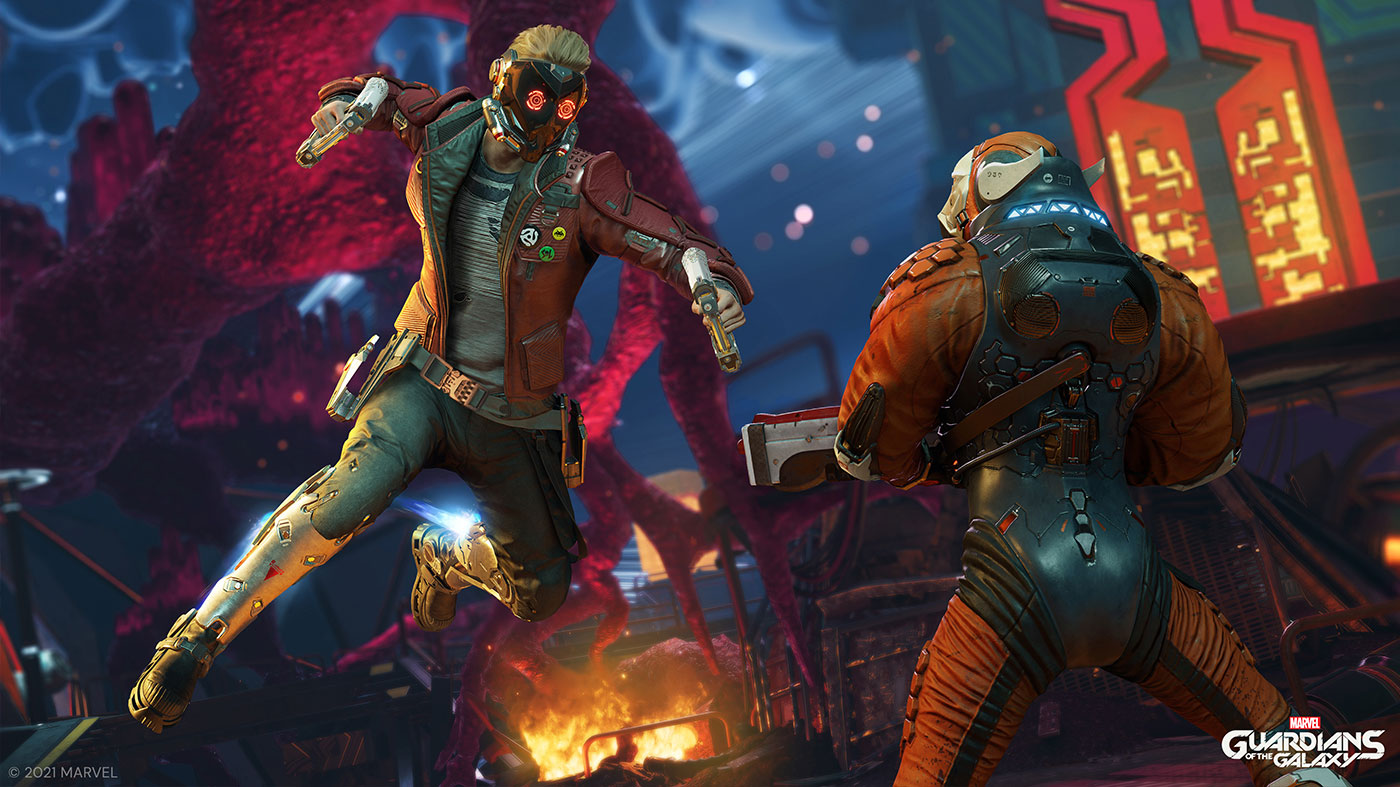
This is achieved in a few ways, depending on the context, with decision-making playing a key part. Quill is called upon often to have his say in discussions with the other Guardians, in a very simplified system of dialogue choices. Minor decisions tend to affect immediate scenes and character interactions while major ones can have major impacts on how gameplay sequences play out, but the broad strokes of the narrative remain mostly the same no matter what.
Leadership also plays a big role in combat, to the point that for a large portion of the game fights can feel oddly hands-off. Star-Lord’s an adept and valuable member of the team in a scuffle with his blasters and jet boots, but the game doesn’t ask much of players as far as shooting skill and reaction times go. With a generous lock-on and auto aim and simple movement, the focus is less on what Quill does and more on how he directs the other Guardians through a Final Fantasy VII Remake-esque strategic pause. As occasionally clumsy as it can be, combat is surprisingly fun once you understand the synergy between Quill and the rest of the team and how best to string together elemental shots, your own abilities and those of the other Guardians.
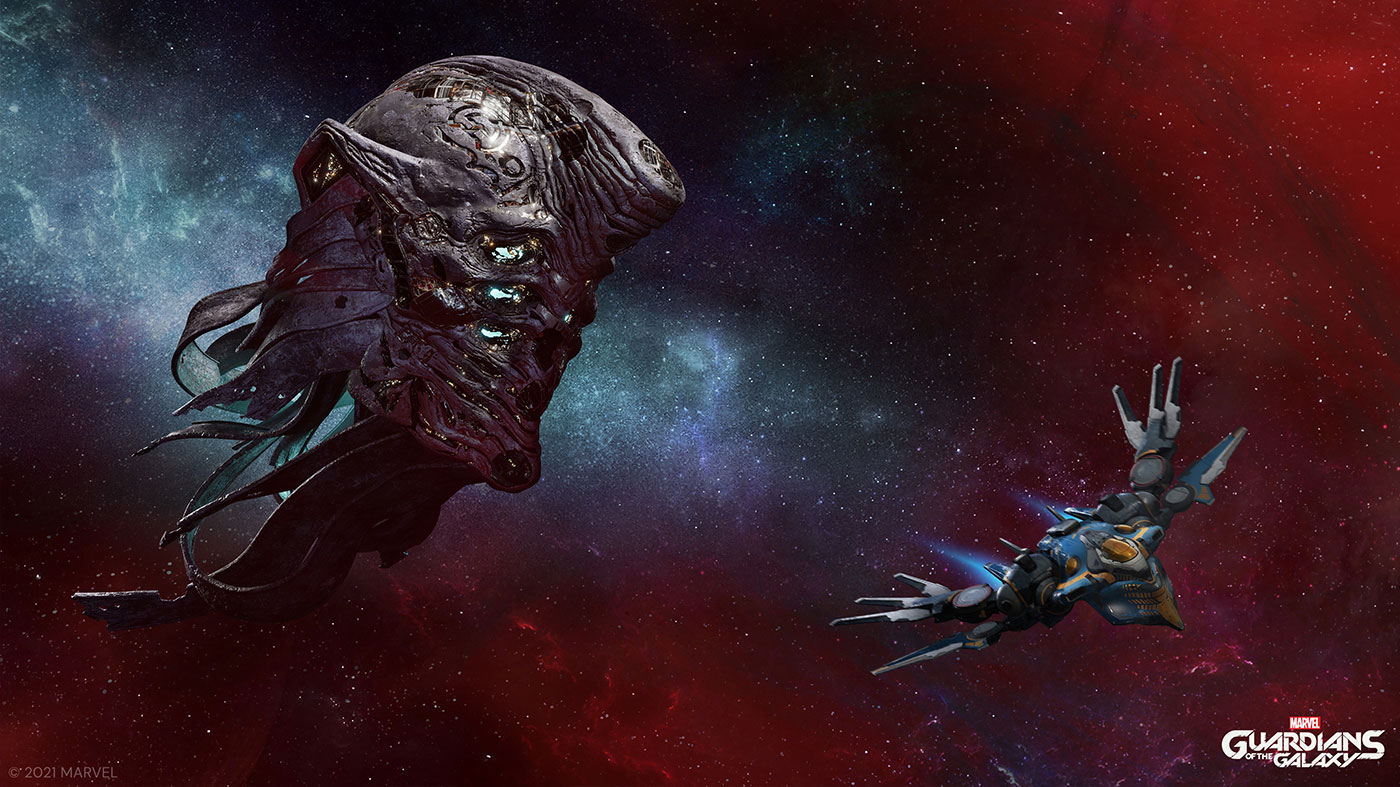
The biggest problem with Guardian’s combat is simply that it takes too long to play all of its cards, giving the incorrect impression that it lacks depth or panache for far too long into its overall runtime. Coupled with enemies that aren’t particularly inspired or interesting and the predictable rhythm of ‘walk into a room full of waist-level cover, fight waves of enemies, move on’ it gets old before it gets good. Which is disappointing, because it does eventually come into its own in the later stages, especially once Star-Lord’s full gamut of elemental abilities are available and his contributions have more impact.
Like combat, the game’s level design in most areas goes a long way to help sell the team dynamic, but it’s also decidedly old-school in a lot of ways. It’s an incredibly linear experience, for one. That’s not necessarily a bad thing, in fact it works to the benefit of keeping the game moving at an exciting clip, but it keeps things fairly basic. Comparisons to PS3-era Uncharted and Tomb Raider games are probably unfair, but not entirely inaccurate, especially with the sheer number of times it forces Quill to shimmy across ledges, squeeze through gaps in walls and slide down long slopes. It does that a lot. “Acknowledge my velocity!” is the greatest Drax line ever though, so there’s some good to come from those.
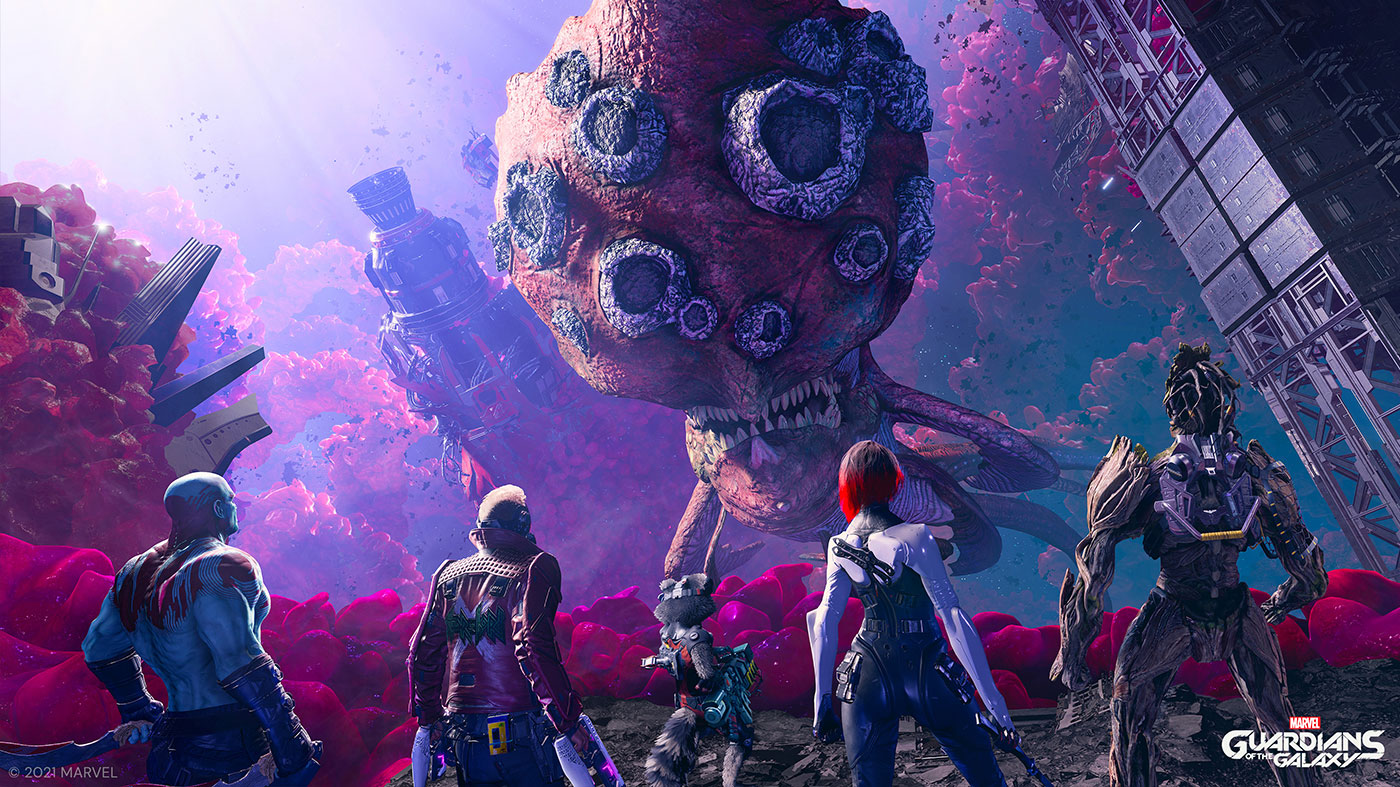
Every new location that the Guardians visit in-game is a stunning showcase though, from the sweeping vistas and improbable nature of alien worlds to some of my favourite sci-fi mainstays like intergalactic black markets. Likely owing to its linearity, there’s a thoroughly impressive level of variety across the many places you’ll visit that makes every new chapter fresh and exciting. It really needs to be stressed just how gorgeous the game is overall, especially in its character models that are some of the best I’ve seen in a video game in how they marry technical prowess with great design. Motion capture and animations across the board are fantastic, materials and effects have incredible presence, it’s ridiculous just how expertly Eidos Montreal has pulled together so many disparate aesthetics and principles into something so razor-sharp.
And yes, the 80s pop/rock soundtrack is absolutely killer. Not just the amped-up moments where you’re soaring through space to the opening of “White Wedding” or wrecking shop to the tune of “Kickstart My Heart”, but gleefully goofy moments where your mid-combat huddle throws out a song like Rick Astley’s ”Never Gonna Give You Up” as a backdrop to fighting hordes of cultist fanatics.
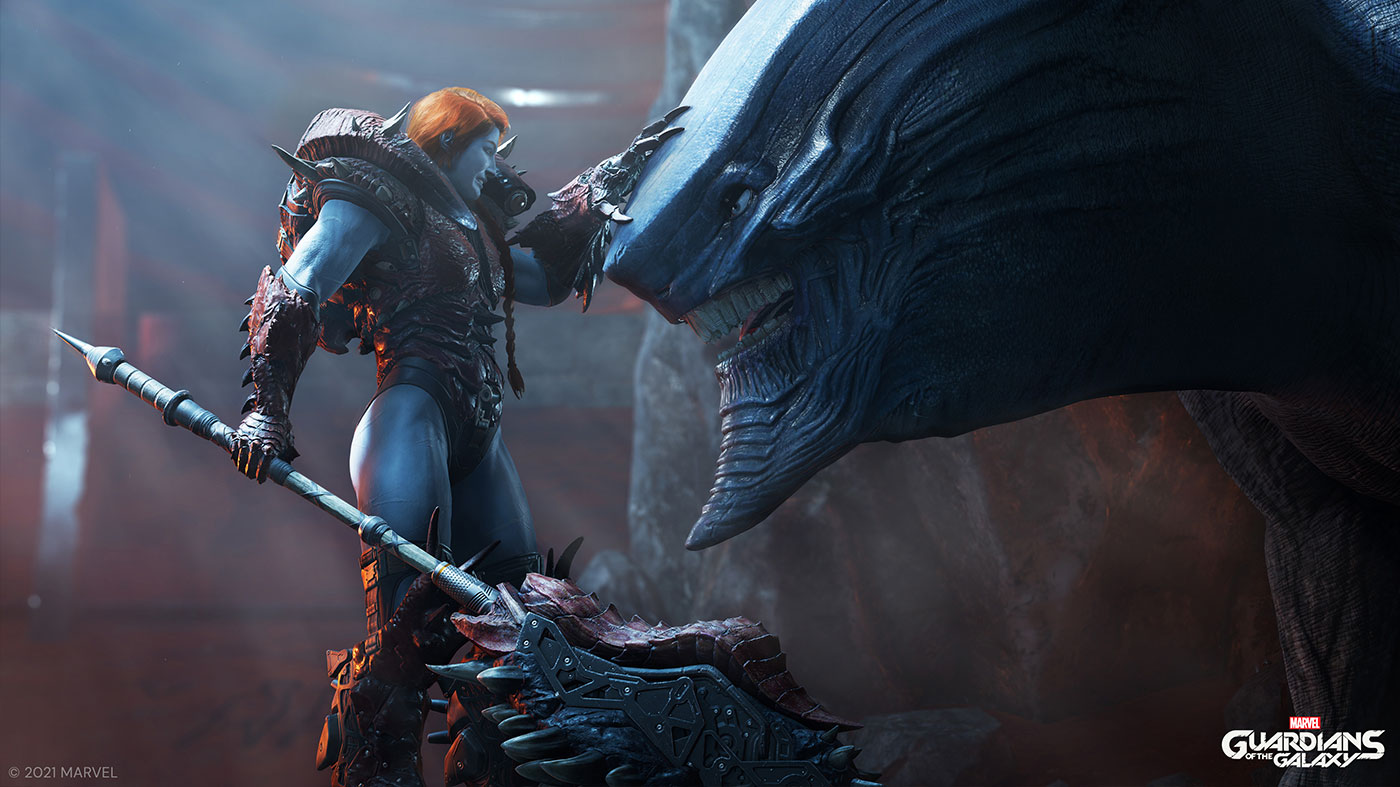
Somehow, despite the uneven nature of both combat and general exploration, everything in the game comes together into something that’s far better than the sum of its parts. A lot of that is to do with the pacing of the game as a whole, another crucial area where Eidos Montreal has leveraged their many years of expertise in storytelling and game design for Guardians of the Galaxy, making the choice of a hard linear structure feel earned with a fantastic sense of momentum. A roaring stream of explosive set-pieces, wonderous planetary sightseeing and quieter moments of reprieve and reflection roll into each other over a packed 15-20 hours where no single moment feels needlessly drawn out.
It’s one of those titles that I fully expect players to smash out over a marathon weekend session because there’s simply never a time where putting the controller down feels like a good idea. It may take a touch too long to get there, but the power climb for both Quill and the Guardians as a team picks up to a fantastic crescendo. As the game’s closing chapters come around and your crew is autonomously solving problems and blasting through enemy waves in unison there’s a sense of pay-off that few games achieve.
Oh, and the ending is triumphantly on-brand.


